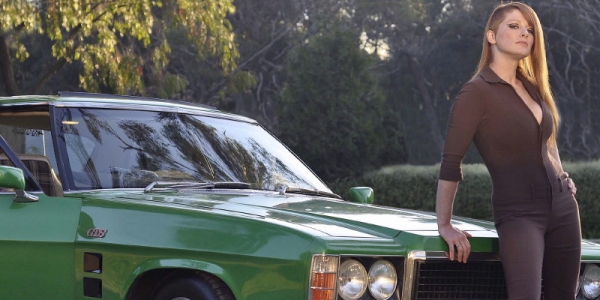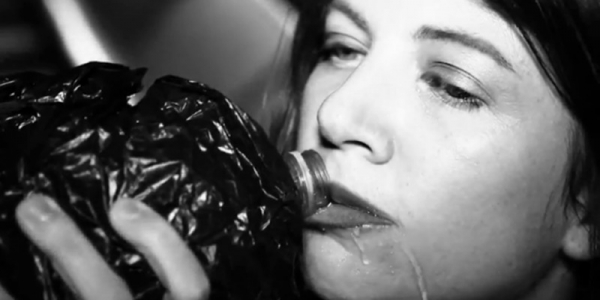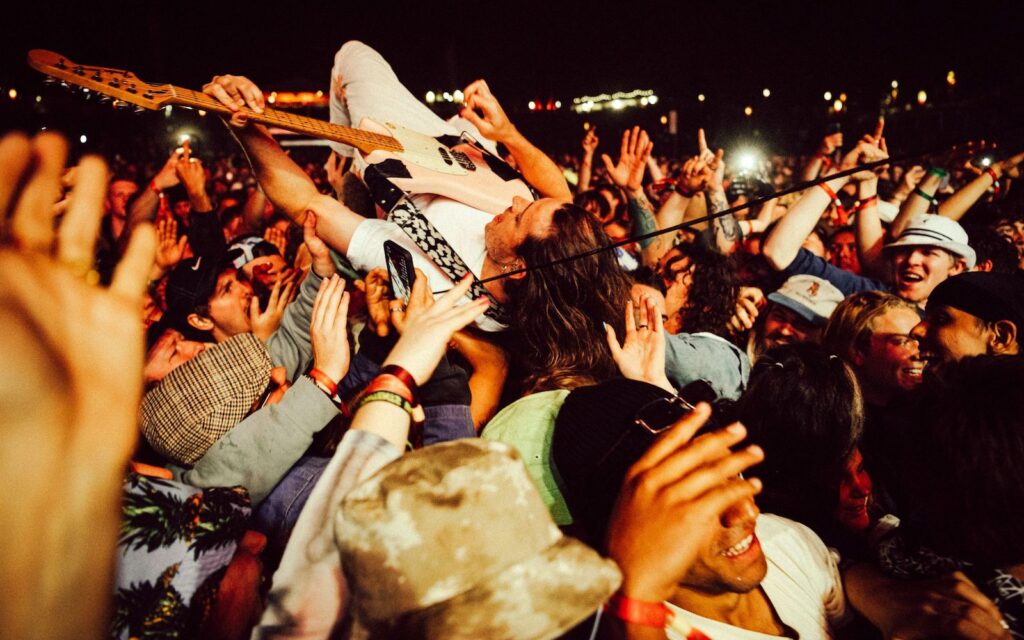“We’ve got Dave, who plays bass and piccolo bass and Dale our drummer. We’re working really well together so I’m really excited,” Whalebone says.
Animal Hands is essentially Whalebone’s project and she hasn’t been particularly bothered by the lineup changes. Despite this, she states that it shouldn’t be viewed as a solo endeavour. “I like to see it like an umbrella and artists can come and go and put their influence into it and then it can morph; it doesn’t have to be some solo idea.”
Striking up a musical bond with a group of people is not a straightforward task, however Whalebone explains that the current lineup gelled almost immediately. “When I met Dave, I knew straight away ‘this is a person that’s going to get where I’m coming from’. Then Dale came along, and he’s just got back from the UK and he was playing with punk bands over there, and he’s got that fire that I was really looking for.”
The working relationship has been very prosperous, which has led them to collaborate on new material. Whalebone believes upholding an open door policy is beneficial for the band, as it allows for more diversity. However, she does have specific aims for what Animal Hands represents. “I do have a firm idea of what Animal Hands sound is, so when I choose who I’m working with, I do have a very strong idea of how it’s going to go musically. It’s not like I’d go right out of the genre. The people I choose to work with have the same interests,” she says.
In contrast to the way a lot of bands function, Whalebone has no desire to occupy the position of dictator and indicates that when people join the band they’re always free to express their opinions. “It would be really hard for artists that have committed so much time to their artform to all of sudden have no artistic freedom at all. The idea is to be able to share a space. We’re not getting paid a whole lot, so you’ve got to do it for the love.”
In the coming months, Animal Hands plan to follow up the self-titled EP released earlier this year with a new single. Whalebone explains the rigorous procedure that she believes will provide them with the best document of where they’re at. “What I did last time, and I’m going to use the same method again, is basically putting together as many songs as we can and then basically decide which ones get into that final list. Then go down from there to what we think would be good as our first single as the new lineup.”
Whalebone intends to maintain a working arrangement with Lindsay Gravina, the famed Melbourne producer who recorded the first EP. “I hope to keep returning to Birdland and having that continuity with Lindsay, because he has such a distinct style as an artist himself,” she says.
Gravina came to prominence in the 1990s thanks to his involvement on the major breakthrough albums from Magic Dirt, The Living End and Jebediah. Animal Hands’ sound conspicuously derives from the ’90s indie-grunge scene, and Whalebone admits to a strong affection for the early to mid ’90s period. “For me personally, it was such an honest time in rock’n’roll, especially being a female artist. It was a great time where you had all of these women that were in these big headlining bands and they were hard arses! People were rebelling against this concept of having to be glossy and say all the right things.”
Whalebone proceeds to roll out a list of some of the women who have inspired her to pursue music and discover her own voice. “Adalita, Kim Gordon, Kim Deal, the artists from Veruca Salt, PJ Harvey; it was just such an incredible time,” she enthuses. The strength of these women comprehensively showed that rock music is not purely a man’s domain. However, Whalebone acknowledges the major female figures who pre-dated the ’90s movement. “You go back through time, you’ve got Patti Smith, you’ve got Chrissy Amphlett; it’s not like it hasn’t always been there.”
Nonetheless, Whalebone regards the 1990s to have had a particularly progressive spark, which continues to motivate her and many of her contemporaries. “What happened, it seems to me, there was a surge. It seemed to be a time and a place where it all lit up and there were a lot of subjects being thrown out there.”
BY AUGUSTUS WELBY







